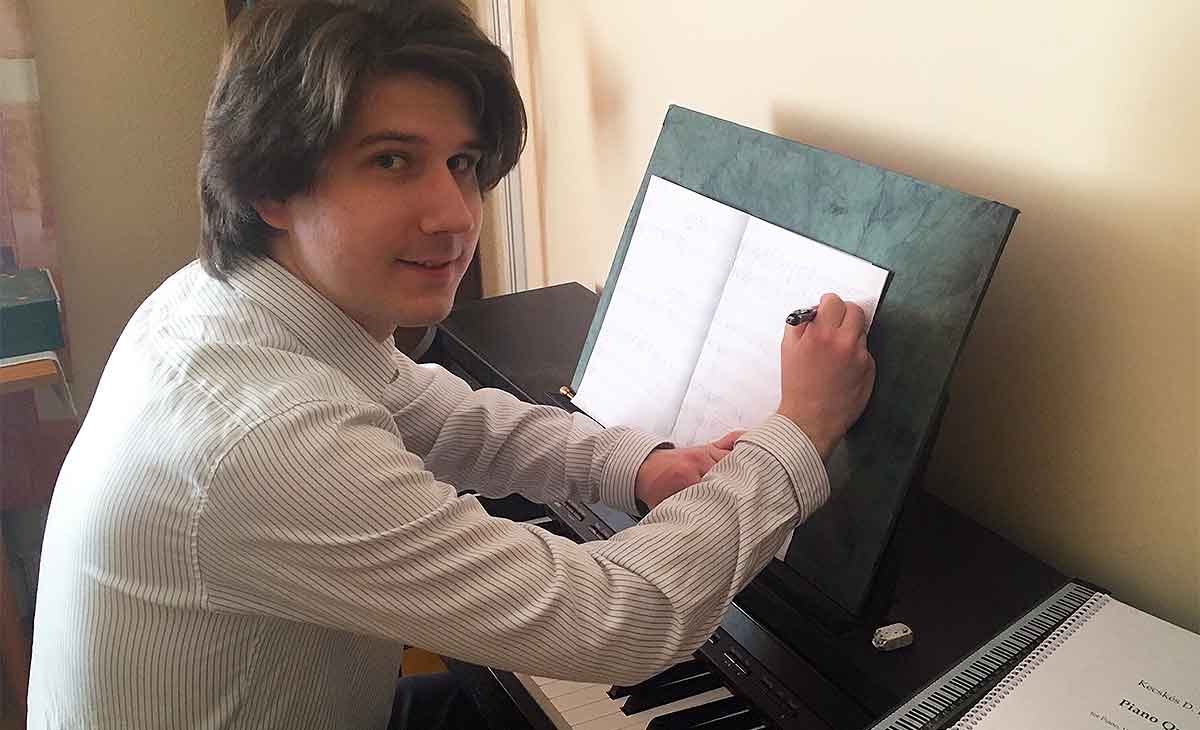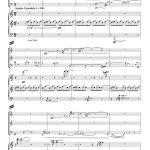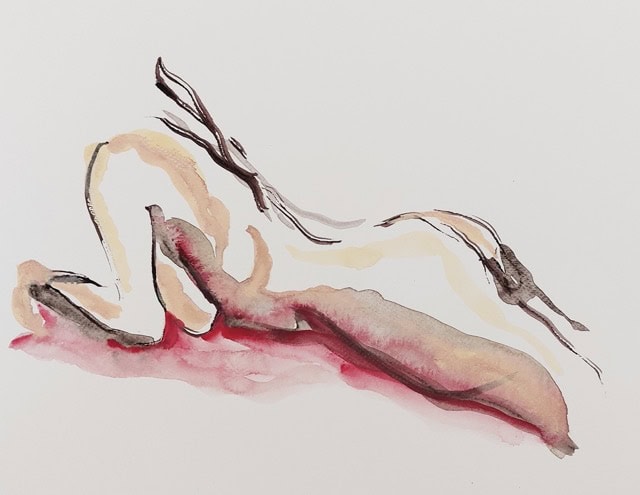The Garth Newel Composition Competition, which was organised for the 8th time this year, ended with a Hungarian victory. Balázs D. Kecskés, a doctoral student at the Liszt Academy of Music walked away with the main prize. Balázs came in first with his piece entitled Accusativus, which premiered on 11 August 2018.
The Garth Newel Music Center founded in 1973 in Hot Springs, Virginia is one of the most active hotspots of chamber music in the USA. Its orchestra, the Garth Newel Piano Quartet, holds 60 concerts each year.
Your piano quartet Accusativus was selected for the title of best composition by the jury of the Garth Newel Composition Competition from among 90 submitted pieces. What would you say to the general public about the competition and the quartet?
The Garth Newel Piano Quartet is one of the most significant chamber ensembles in the USA. They announce a call for composers every year with the aim of expanding the repertoire of musical pieces for piano quartets. The piano quartet is an ensemble form dating back centuries. Composers such as Schumann and Brahms created pieces for such ensembles too. This is perhaps a typical formation in contemporary musical composition, which is partly what gave me the motivation for the task.
Who were your judges? How does the jury evaluate at all, what aspects do they consider?
The jury comprised members of the quartet too. When applying for the competition, you had to submit the music sheet and a recording of the piece. During the evaluation the jurors had to consider a number of factors. In music competitions, jurors are often of very different tastes and they hold different aspects of music important, which makes reaching a decision all the more difficult. In the case of a chamber ensemble this might be easier: at best, jury members have at least similar aesthetic approaches. The quartet said that it was “the emotional depth (of my piece) that captured them”.
How did the idea of participating in this competition come to you?
I first heard about the competition two years ago, and it really appealed to me back then. The possibility of the composer getting invited to the premiere and other pieces by him being performed, not only the winning piece, really inspired me.
The winning composition was your piano quartet entitled Accusativus. Did you write it specifically for this competition?
During the composition I concentrated primarily on the competition. Before composing a new piece I generally spend some time on research. This means I examine many pieces by other composers (old and new alike), then after familiarising myself with them I start composing my own music. This is very important to me because I think that entering into a dialogue with music history can only make one’s music richer and deeper.
Have you participated in competitions before as well? Would you tell us about these?
Yes, I have received awards and prizes at several competitions in Hungary and abroad. Among others, I won the composition competition of the Academy of Music when I was a first-year student there. I was also awarded a prize at the Generace Composer Competition in Ostrava. It is important for young composers to take part in as many competitions as possible since this gives them the chance of building a reputation in wider professional circles.
You are a doctoral student at the Academy of Music and are also teaching composition at the Bartók Music Secondary School. How did music become your career for life?
I started learning music at a very early age, when I was 6 years old, and I became interested in composing music almost instantly. Although I didn’t come from a musician family, learning music was always a priority in our family. My mother used to practise with me a lot when I was little, and this helped me later on as well. I think myself lucky because at an early age I was already pretty sure that I wanted to be a professional composer. So I didn’t have any trouble finding my career path.
What were your main subjects at the Academy of Music?
I learned composition as a main subject from János Vajda, a significant Hungarian composer. Mr. Vajda helped me immensely in setting realistic goals for myself. Since he was a highly experienced composer, he always foresaw the possible pitfalls of my new compositions. We also learned instrumentation, we had to compose stylistic practices imitating earlier composers, we had music history classes and we also had to analyse many pieces in music analysis lessons.
Who were your most important influences, do you still have influential mentors?
Besides my main course teacher János Vajda, I received a lot of help and advice from Gyula Fekete, the Head of the Composition Department. Among others I was greatly influenced by Gergely Bartha, Endre Olsvay and András Wilheim as well. During my conservatory years I learned a great deal from István Fekete Győr and my namesake Balázs Kecskés. What I learnt from them still defines the very basics of my approach to music. I am grateful for being able to learn from these people and for still having a very friendly relationship with them.
Speaking of classical music… How do you relax?
Since composing music is my profession, I can’t really consider listening to music a form of relaxation (instead my hobby is reading).
Are there any composers who always have an impact on you?
As regards contemporary musicians, I am impressed by Russian composer Alfred Schnittke and British composer Thomas Adès. I study their music a lot and I’m writing my doctoral thesis on them too. In recent years, I have been trying to keep track of pop music as well, but unfortunately I am a bit behind in this field… I often ask for advice from my friends and family about what to listen to, but I don’t really have favourite genres.
What popular music do you like listening to?
One of the latest trends in American music is indie classical, which is basically a classical musical style that uses a number of elements from pop music as well. The lines are getting blurred anyway, it is more and more difficult to differentiate between high culture and pop culture…
What are you working on right now?
Just now I’m working on a chamber piece written for seven instruments. This is a kind of preliminary study for a larger orchestra piece which I’m planning to compose in the second part of this year. I would also like to compose a piece for a string quartet and four singers. I think this has plenty of options for exciting timbre combinations.
What future plans do you have?
These days I’m trying to build up my music gradually: to go from the smaller compositions to the larger ones step-by-step, in a very self-conscious way. I want to dig deep into musical genres as well in order to understand them better.








